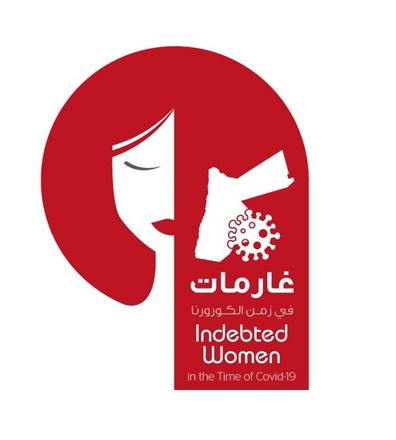You are here
Project mentors debt-ridden women to entrepreneurship, financial success
By Ahmad Al Amaireh - Jan 31,2021 - Last updated at Jan 31,2021

Image courtesy of Durrat Almanal for Development and Training Facebook page
AMMAN — With the continuous negative impact of the COVID-19 pandemic on the national economy, more women have become ensnared in chronic debt traps, according to a report by Durrat Almanal for Development and Training and the Jordanian Society for Protection of Victims of Family Violence.
Indebted women or “Al Gharimat” are women heavily indebted for different reasons. Those women endure financial, legal, social and psychological problems due to their inability to pay their debts.
Several parties are involved in this crisis, including some finance firms and banks, and some businesses with deferred-payment plans, in addition to some of the indebted women themselves, according to experts.
Many indebted women were sued, and as a result, some of them have served and are serving prison terms. Nevertheless, the overall number of indebted women in prisons continues to be reportedly low, the report said.
A recent project by Durrat Almanal for Development and Training and the Jordanian Society for the Protection of Victims of Family Violence titled “Indebted women in Jordan in the times of COVID-19” aims to shed light on the issue of indebted women.
The project, funded by a grant from the Swiss embassy, works on creating preventive and rehabilitative programmes to monitor female debtors and enhance their financial management skills, according to the report.
The programme focuses on increasing the financial awareness of women to successfully lead and grow their businesses. Another goal of the project is to make policy recommendations for the government aimed to improving laws and legislations related to financing women entrepreneurs, the report said.
From the period of June 1, 2020 to January 31, 2021, 20 women were selected to participate in the project.
The selection criterion for these women was that their businesses were running successfully prior to the pandemic but slowed down after it, rendering them unable to meet their financial responsibilities, not through a fault of their own but because of the unforeseen circumstances brought into play by the spread of the disease, the report said.
“After the selection process, a team from Durrat Almanal interviewed the women and assessed the status of their businesses. Additionally, a team from the Jordanian Society for Protection of Victims of Family Violence provided psychosocial interventions and legal consultations with the aim of increasing their knowledge and awareness on the status and operation of the Jordanian economy,” Sawsan Majali, senior consultant at Durrat Almanal, told The Jordan Times.
On January 17, the project conducted a roundtable discussion of the programme and came out with a number of recommendations, stressing the need to help participating women by providing them with technical and training support necessary for the successful operation of their businesses, Majali said.
The discussion also recommended reviewing lending regulations, and exempting some borrowers from payment especially those with smaller loans, considering the generally difficult situation of the economy overall, she added.
“With regard to the legal aspect, the Central Bank of Jordan was urged to supervise microfinance companies by imposing restrictions on unlicensed financing companies to control their operations. Additionally, a recommendation was made to enhance self-confidence and the capabilities of productive women through economic, psychological, and legal empowerment courses,” attorney Ahmed Abu Rumman of the Jordanian Society for Protection of Victims of Family Violence told The Jordan Times.
Related Articles
AMMAN — A report issued by the Arab Renaissance Organisation for Democracy and Development (ARDD) showed that 65 per cent of Jordanian women
AMMAN — A local study on the perceptions on the justice sector in Jordan indicated that people are more content with religious rather than c
AMMAN — The board of directors of the Zakat Fund on Monday approved the settlement of outstanding financial debts for 160 eligible gharimat
















